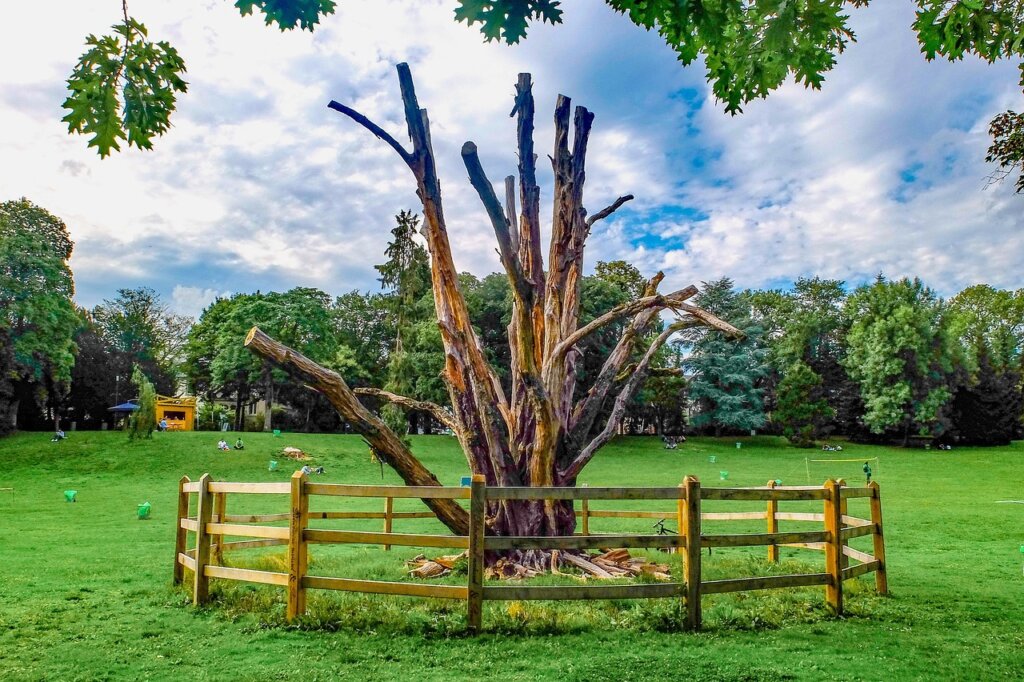Squatter law in Kentucky allows for some complicated legal problems that many homeowners may not be aware of. If your circumstances happen to surround abandoned property or (particularly) a vacant house, you will want to know how squatter’s rights in Kentucky could affect the land and home you own. In this post, you’ll learn everything about squatters rights in Kentucky, how to evict someone in Kentucky, adverse possession in Kentucky, and preventing them from coming back.

Squatters Rights in Kentucky: What Are They?
Squatters The term for the squatters is used to refer to individuals who find a house that is not being occupied and live in it (usually without the permission of its owner) and obtain title or ownership rights over a period of time.
Under a legal concept called adverse possession, squatters in Kentucky can gain rights in land they occupy. If a squatter lives in a property for long enough to satisfy some conditions without the permission of the owner, they can in fact claim ownership. This is because of the squatter laws in Kentucky, including Squatters rights in Kentucky, and Kentucky land rights.
In Kentucky, how many years does someone have to live on your property and pay taxes to claim trespassers’ rights?
Since so-called squatters’ rights forgo homeownership, in Kentucky, a squatter must hold the property in question continuously and without challenge for 15 years to acquire ownership by adverse possession.
To acquire a legal claim to the house in the state of Kentucky, the squatter must satisfy certain conditions. Ultimately, the main concern is how long squatters have had control over the property. It is for 15 years, a longer period of time than in many other states. If a squatter openly uses the land and it’s their only use, they might be able to claim ownership under adverse possession laws in Kentucky.
Elements of Adverse Possession Kentucky:
- Continuous Placement Sustained: Squatting possession must not have been interrupted.
- Exclusive Use: The occupant doesn’t do anything on the property that could be done as a residential owner.
- Visible and Public: The control over the possession should be visible and known.
- Hostile Claim: The squatter’s possession has to be hostile (against the owner’s wishes).
- Length: In Kentucky, the duration of having adverse possession of land is 15 years pursuant to Ky.
Can the trespassers file against us under the squatters’ rights laws in KY?
Yes, squatters can possess the land if they fulfill (and prove) adverse possession necessities.
While squatters may squat in empty buildings, they do not automatically gain the right to formally stay there. Could you squat in vacant homes in Kentucky? Squatters’ rights Kentucky rules are relatively free in that someone can just sit on the land, while adverse possession Kentucky laws would still need to be met. The original owner could return and force the squatters off or sell the property, but at some point — after a few years, depending on the state — those squatting there can establish legal rights if they’ve been there long enough.
How is a Squatter Removed in Kentucky?
In Kentucky, the only lawful way to remove squatters from your property is through a legal eviction, which means notice is given to them by service of process, and that you must file in court a lawsuit asking for their removal.
There’s a difference between kicking out squatters and telling them to leave. You will find out how to evict squatters in Kentucky with the following eviction process that, if followed, will help you do just that:
- Serve Notice: A squatter has to be issued with a notice requiring them to leave the property before an actual eviction case may be brought. It gives them a way out.
- File an Eviction: If the squatter refuses to leave after they are given notice to do so, the landlord needs to file an unlawful detainer action with their local court.
- Court Action: A judge will decide whether to order the squatter out at a hearing. If the judge rules in favor of the property owner, an eviction order will be signed.
- Enforcement: If the squatter refuses to vacate, the sheriff’s office will provide assistance with physically ejecting them.
Do Squatters Get Rights in Kentucky?
No, you do not have to pay rent to gain squatter’s rights in Kentucky. Adverse possession in Kentucky allows squatters to acquire the property without paying rent.
You don’t have to pay rent as a squatter the way you would like a tenant in order to get squatters’ rights. Legal title to property is generally based on conditions such as continuous possession, exclusive use, and length of time in actual occupation. But under Kentucky property law, squatters may not even have to pay rent or utilities for that time as a condition of escalating the claim.
What Are the Requirements of Adverse Possession in Kentucky?
In Kentucky, the owner of real estate may lose record title by adverse possession under color of title or claim (though 15 years must have passed and the possession must be: continuous; exclusive; and hostile without permission).
To establish peaceable possession and not a lawful one, the squatter has to meet the following adverse possession Kentucky law notes of explanation:
- Unchallenged possession: The squatter must use the property for a period of 15 years without any challengers.
- Possession: The squatter should have possession of the land.
- Open and Notorious: The squatter must occupy the land in a way that is open or obvious so the true owner will be aware.
- Occupancy Adverse: Typically between you and the owner, though this can apply in other situations as well.
How Do I Prevent Squatters from Living in My Property Here in Kentucky?
To keep squatters at bay in Kentucky, property owners should drop by their property regularly to make sure everything is locked down and blocked off; cut the power also (gas, electric, and water on-site brings more people!).
But there are preemptive steps that you can take to prevent Kentucky squatter situations:
- Random Check-Ins: Visit your property occasionally to ensure that nobody is living there.
- Secure the Property: Squatters may be discouraged by locks, fencing, and security systems.
- Turn Off Utilities: Turn off all of the utilities to make it less attractive.
- Prevent Further Decay: Maintain the property to demonstrate that it is being cared for and isn’t left abandoned.
Can I Legally Evict Squatters from My Kentucky Property?
No, it is against the law to use force to remove squatters from a property in Kentucky. You have to take lawful steps and evict them out of your place.
You may want to think about trying to get squatters off of your property, but you can’t in accordance with Kentucky property law. You cannot forcefully evict squatters. Otherwise, figure out a lawful means to evict them.
What Do I Need To Prove to Evict Squatters in Kentucky?
To evict squatters, you would have to prove that they have no legal right to be on your property and the proper procedures for eviction in Kentucky were followed.
When you ask the court for an eviction order, you will have to prove that the squatter has no legal right to be on your property and you must follow all due process. You should bring proof that they are illegally occupying and the squatter is not paying any rent to help you.
Do Squatters Have Any Rights in Kentucky If They’ve Been There a Long Time?
Yes, Adverse Possession Laws in Kentucky allow the buyers to take over a property by fulfilling the possession requirements if they maintain the property for 15 years without payment and continuously of rent.
Kentucky Adverse Possession Laws Kentucky allows adverse possession by squatters who have lived on the land for 15 years. What happened next is a blizzard of notices, of recitations, and violations.
How to File an Eviction Suit against Squatter in Kentucky?
If you want to start an eviction lawsuit, you will have to appear at the district court in the place where you live or where your rental property is located and file a “complaint for unlawful detainer.” You must then appear in court.
How to Evict a Tenant in Kentucky: Begin the eviction process by filing a complaint for unlawful detainer at your local district court. If your case is good, the judge will issue an eviction order to have the squatter removed.

In Kentucky, can a squatter take lawful possession of my property if they’ve been there for years?
It is possible if a squatter managed to live on your land for 15 years (like actually squat, not like taking an unapproved poop) and have met the conditions of adverse possession in Kentucky.
14 of the Kentucky Revised Statutes 15 Continuous residency on the land for fifteen (15) years allows a squatter to file an adverse possession claim, provided that all other prerequisites of Kentucky law are met.
May Squatters Occupy a Vacant Home I Own in Kentucky?
Squatting in a vacant home is not automatically allowed, however, squatters may gain acquired rights under adverse possession Kentucky after meeting certain standards.
So even if squatters manage to live in vacant buildings, they must still adhere to the adverse possession laws that Kentucky has on the books in order to take ownership. Landowners should use a proactive strategy to stop squatting from becoming a legal issue.
What if I Find Someone is Squatting on My Property in Kentucky?
If you have a squatter on your property, simply serve them a notice to leave and go to court if necessary.
The first thing you do when you discover squatters is serve them with a written notice to vacate. And if they refuse to vacate the premises, you may need to go through court and seek an eviction. No pulling with force to dislodge them.
Kentucky Adverse Possession Laws: Are There Any Exceptions to Kentucky Squatters Rights?
Are all of these lands owned by the government, with a few exceptions that have special legal protections under Kentucky property ownership laws. Some types of property, such as government or legally-protected land, may not be capable of being adversely possessed in Kentucky. Squatters Rights in Kentucky can be complicated, and it’s also a good idea to contact an attorney to find out if your property has any exemptions.
